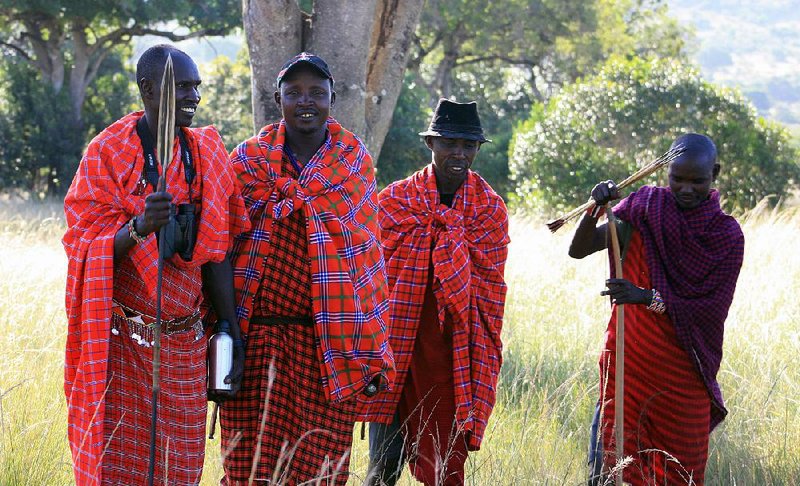MARA NORTH CONSERVANCY, Kenya -- It's not just a safari. It's a master class in the untamed world, a behind-the-scenes education with experts who are the talking Google gods of wildlife.
That's what it's like on safaris that let tourists learn alongside locals who are training to be guides.
The guides, members of Kenya's Maasai tribe, spend three weeks on a training mission traversing East Africa's Maasai Mara region under the tutelage of senior guiding experts. And tourists can come along for the Land Cruiser rides.
The three-week expedition, called Pyramids of Life, moves from Kenya's Mara North Conservancy, which borders the country's famous Masa Mara region, to Tanzania's northern and southern Serengeti. But unlike other safaris I've been on, this one is not just about drive-by photo opportunities. It's about learning to become attuned to the sights and sounds of nature so you're able to predict and identify what may be moving about in the plains.
On a typical safari, you're rushed off from place to place to make sure you bag photos of all the Big Five game -- lion, elephant, buffalo, leopard and rhino. But on this trip, instead, you immerse yourself for hours watching incredible scenes unfold.
As we wound our way through the plains each day under the heat of a penetrating sun, we saw lions mating, impalas galloping by, hungry hippos and giraffes on the hunt for water. We witnessed a wildebeest giving birth and saw her newborn calf stumble to gain its footing, falling and rising several times in those first few moments of life. Then, as the mother began sauntering off to join thousands of other wildebeests in a migrating herd, we were stunned to see the newborn running too.
Pyramids of Life is offered by Alex Walker's Serian tour company. Walker says when he first started in the business 20 years ago, he used to conduct 45-day safaris. "Back in the day, you really got to know the landscape and understand the animals," Walker said. "Your newspaper was reading the sounds of animals and birds to indicate what was happening in the bush. It was like a chess game, trying to work out where things were."
Today, most game drives have been condensed to one or two days out in the plains. "The idea of safari has been compacted into photos and soundbites," Walker said. The idea behind the Pyramids of Life tour is "to bring that real-life-connect-the-dots back. We want to teach you to read the plains."
Serian's Maasai guides know the bush, having grown up here, but they have "differing levels of knowledge." The training allows them to share what they know with each other and with the guests, and provide an overlay of information about what they're seeing. "It's about reconnecting with nature and allowing for the time to take it all in," Walker said.
We partook in a walking safari to learn the ways of the Maasai. We were shown plants used for healing, others used as deodorant. At one point, they showed us how to make fire with sticks and how they once hunted with a bow and arrow.
At night, we congregated around a fire, discussing the wonders of the day.
If you go
PYRAMIDS OF LIFE: Program offered annually for three weeks in March, though guests can sign up for shorter periods; serian.com/we-call-it-home/masai-mara-kenya/serian-the-original
Travel on 09/25/2016
